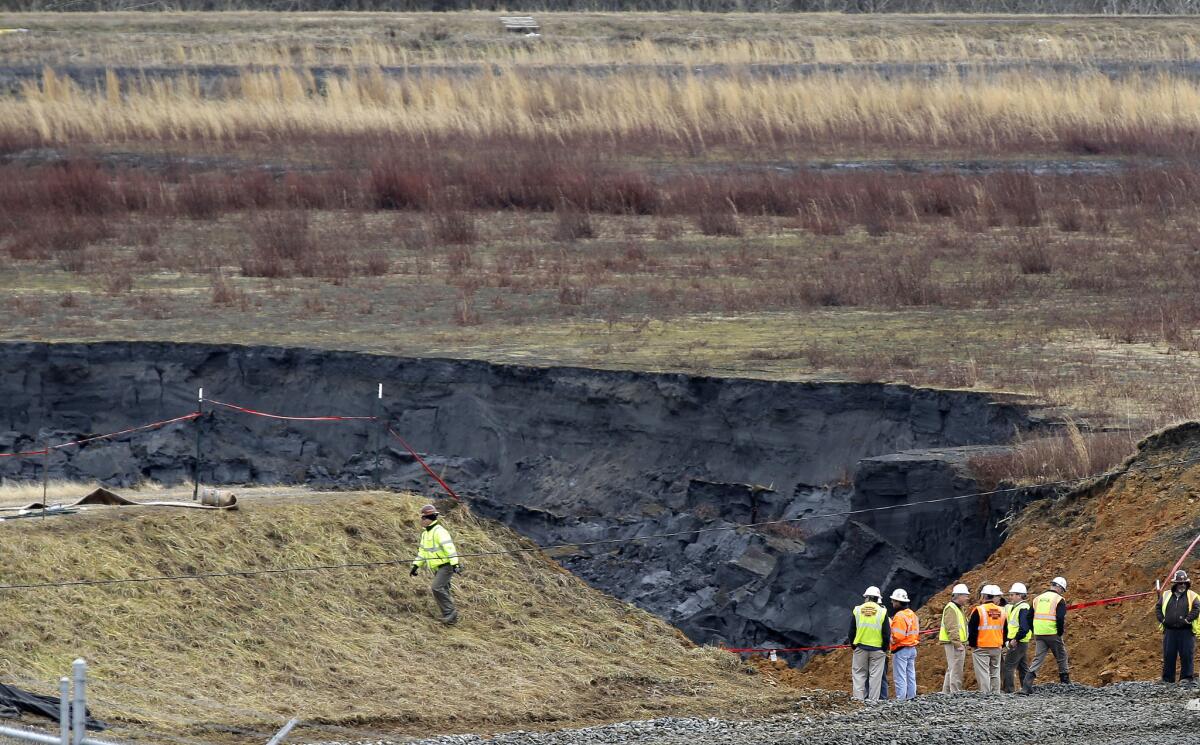Duke Energy says coal ash guilty plea may cut power to military bases

If Duke Energy pleads guilty to federal criminal violations of the Clean Water Act, will the lights go out at Ft. Bragg, N.C.?
The nation’s largest electric utility raised that possibility in federal court Tuesday, suggesting that a federal law could prevent a guilty Duke Energy from supplying power to military bases and federal facilities in North Carolina. Duke is negotiating a guilty plea to nine criminal misdemeanor violations of the Clean Water Act from coal ash dumps at five power plants in the state.
A federal judge on Tuesday granted Duke’s request to delay its guilty plea for a month to work out details of a five-year probation proposed under the plea deal.
Under federal law, a utility that commits criminal violations is “debarred’’ from engaging in future business with government entities. As a regulated monopoly, Duke is the only major electricity supplier in North Carolina.
The utility said it is negotiating with the Environmental Protection Agency, which administers the Clean Water Act, for a debarment waiver to continue to provide electricity to federal facilities in North Carolina.
The issue arose in court Tuesday when the judge referred to earlier motions filed by Duke regarding possible threat to electric power at federal facilities in the state.
The federal charges stem from a massive leak that dumped up to 39,000 tons of coal ash and 27 million gallons of coal slurry into the Dan River in February 2014. In February this year, a federal criminal information charge said Duke “negligently discharge[d] pollutants’’ into waterways and failed to exercise “ordinary prudence.’’
Duke announced Feb. 18 that it has set aside nearly $102 million to pay fines and restitution in the case. Under the plea deal, the utility would be placed on five years’ probation and set aside $250 million as security to ensure it abides by probation requirements.
In court Tuesday, U.S. District Judge Malcolm J. Howard joked that he wasn’t too concerned about the lights going out at the federal courthouse in Raleigh, which is served by Duke. But he said he would be concerned if power was cut to Ft. Bragg and Camp Lejenue, two large military institutions in the state.
Assistant U.S. Atty. Banumathi Rangarajan told the judge, “No power will be shut off, your honor.’”
Howard granted a four-week continuance to May 14 for Duke’s arraignment and plea, which had been scheduled for Thursday in federal court in Greenville, N.C. He said figuring out how to put a major corporation on federal probation had “caused a considerable about of work and effort for this court.”
Duke spokeswoman Paige Sheehan said after the hearing that Duke would proceed with the plea deal even if it is unable to avoid debarment. Duke provides power to post offices, prisons, federal courthouses and other federal facilities in North Carolina.
“We expect to appear for sentencing,’’ Sheehan said. “We are not walking away form this agreement.’’
Sheehan said Duke wanted to settle the debarment issue before entering into a plea deal so that it could provide clarity to hundreds of government facilities and subcontractors.
Duke’s contract with Ft. Bragg expires Sept. 30, according to the utility, with contracts for Camp Lejeune and other military bases expiring later.
Frank Holleman, a lawyer for the Southern Environmental Lawyer Center, which has filed civil lawsuits against Duke Energy, said debarment is relatively straightforward in cases involving road construction companies on federal projects because competitors can replace them if they are convicted.
“But how do you handle debarment for a public utility that is a legal monopoly?’’ he said. “I don’t know.’’
Judge Howard said debarment reminded him of the 1972 country song “The Night the Lights Went out in Georgia,’’ and he looked up the lyrics. He provided copies to lawyers for both sides.
The judge read from the lyrics in court, “Don’t trust your soul to no backwoods Southern lawyer ‘cause the judge in the town’s got bloodstains on his hands,’’ he said.
After the laughter died down, Howard told the lawyers, “I don’t think that applies to any of my Southern lawyer friends.’’
Follow @davidzucchino on Twitter for national news.
More to Read
Start your day right
Sign up for Essential California for news, features and recommendations from the L.A. Times and beyond in your inbox six days a week.
You may occasionally receive promotional content from the Los Angeles Times.






